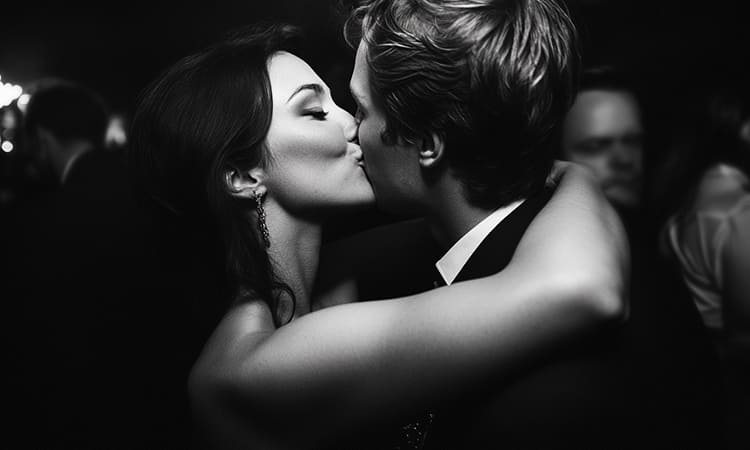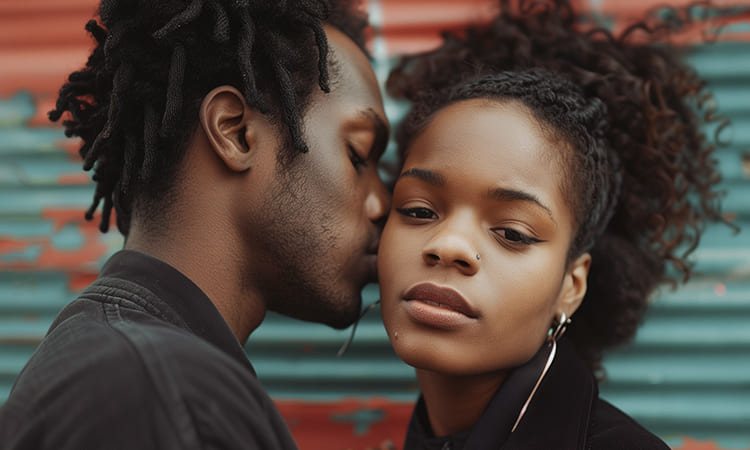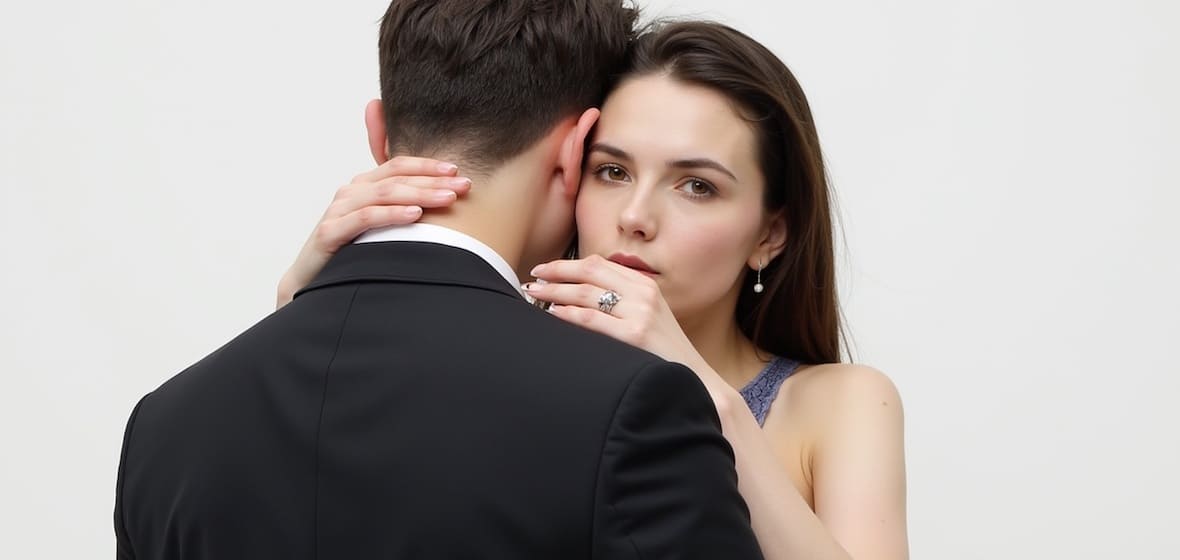Ah, the first date. The phrase itself conjures a potent cocktail of anticipation and anxiety for many.
It’s a threshold moment, a step into the unknown with the potential for connection, sparks, and perhaps, the uncomfortable reality of mismatch or rejection.
As a psychologist who has guided countless individuals through the labyrinth of relationships and self-perception, I can assure you of one fundamental truth: fear is a perfectly normal, even expected, companion on this journey.
But what lies beneath the surface of those fluttery stomachs and sweaty palms?
Why do we, intelligent and capable adults, often feel like awkward teenagers again when faced with sitting across a table from someone new?
Understanding the roots of these fears is the first, crucial step in learning to navigate them effectively.

The Primal Symphony of Potential Rejection
At a fundamental level, our fear of first dates taps into a deep-seated human need for belonging and acceptance, while also poking at a primal fear of rejection.
For much of human history, being ostracized from the group meant vulnerability, even danger.
While the stakes are significantly lower in modern dating, our brains still carry echoes of this ancient wiring.
Failing to connect with a potential partner can feel, on some unconscious level, like a form of social exile, triggering feelings of inadequacy or unworthiness.
This isn’t just about dating; it’s about identity. We present a version of ourselves, hoping it will be received and valued.
A perceived lack of interest from the other person can feel like a judgment on our core being, rather than simply an indication of incompatible chemistry or differing life paths.
The Echoes of Past Encounters and Self-Perception
Our personal history heavily colours our first-date experiences.
If past dates have been awkward, resulted in ghosting, or involved painful rejection, the prospect of a new one can trigger anticipation of similar negative outcomes.
These past experiences don’t just create anxiety; they can reinforce negative self-beliefs.
We might internalize the idea that we’re “not interesting,” “not attractive enough,” or “always mess things up.”
These ingrained narratives, often fueled by past pain, become self-fulfilling prophecies if not consciously challenged.
Furthermore, our baseline self-esteem plays a significant role.
The lower your self-esteem, the more likely you are to interpret ambiguity negatively, assume the other person is judging you, and feel intense pressure to perform or be someone you’re not.
The first date becomes less about genuine connection and more about a constant internal assessment: “Am I good enough? Do they like me?”
The Fog of Uncertainty and the Pressure to Perform
First dates are inherently uncertain. You don’t know the other person well, their expectations, or how the dynamic will unfold.
This lack of predictability can be unsettling for minds that crave control and certainty.
We worry about awkward silences, running out of things to say, misinterpreting signals, or simply not knowing how to be.
Adding to this is the often self-imposed pressure to make a good impression, to be witty, charming, attractive, and interesting – essentially, a curated, highlight-reel version of ourselves.
This pressure diverts energy away from genuine engagement and into anxious self-monitoring. We become spectators of our own performance rather than active participants in a shared experience.
Unmasking the Common Demons
These underlying psychological factors manifest as several common first-date fears:
- Fear of Awkward Silence: The dreaded conversational lull is often seen as proof of a failed connection or lack of chemistry. In reality, comfortable silences can be a sign of ease, but the fear of them is palpable.
- Fear of Not Being Interesting Enough: Driven by insecurity, this fear manifests as worrying you’ll bore the other person or that your life isn’t exciting enough compared to theirs.
- Fear of Physical Appearance Judgment: Will they find me attractive in person? Does my outfit look okay? This anxiety stems from societal pressures and personal body image issues.
- Fear of Saying the Wrong Thing: This leads to overthinking every word, fearing you’ll sound unintelligent, inappropriate, or reveal something off-putting.
- Fear of Clear Rejection: The possibility of hearing “This isn’t a match” or not being contacted afterward is a direct confrontation with the fear of not being wanted.
- Fear of Their Expectations: Worrying about whether you live up to the profile they read or the persona they’ve built up in their mind.
From Trial to Adventure
So, how do we move beyond being paralyzed by these very real fears?
The answer isn’t to eliminate fear entirely – that’s unrealistic. It’s about changing your relationship with the fear and shifting your perspective.
Reframe the Purpose
Stop viewing the first date as an audition where you are the sole performer being judged. Instead, see it as a low-stakes opportunity to gather information and have a potentially pleasant experience.
You are also interviewing them. Is their energy engaging? Are they genuinely curious?
Does their behaviour align with what you’re looking for? This shifts the power dynamic and reduces the pressure.
Embrace Curiosity
Approach the date with genuine curiosity about the other person’s story, perspectives, and experiences.
Focusing your attention outwards on learning about them naturally redirects energy away from anxious self-monitoring. Ask open-ended questions and truly listen to the answers.
Practice Presence
Anxiety often pulls us into the future (catastrophizing) or the past (dwelling on mistakes). Train yourself to stay present during the date.
Focus on the conversation, the environment, your own feelings in the moment. Mindfulness exercises before the date can help build this capacity.
“Connection is the energy that exists between people when they feel seen, heard, and valued; when they can give and receive without judgment.” – Brené Brown
This quote reminds us that simply showing up, in all our imperfect humanity, is an act of courage.
True connection requires vulnerability, which means accepting the possibility of not being perfect or not being accepted by everyone.
Fortifying Your Inner Citadel Before Embarking
Preparation isn’t about scripting; it’s about building confidence and reducing uncertainty.
- Choose Comfort: Suggest a location where you feel relatively comfortable and relaxed. A casual coffee shop or a walk in a park might feel less intimidating than a formal dinner.
- Plan, Don’t Script: Think of a few topics you could genuinely discuss – recent positive experiences, interesting hobbies, travel dreams – but don’t write down exact lines. Authenticity trumps memorized wit.
- Dress to Feel Good: Wear an outfit you feel confident and comfortable in. When you like how you look, it boosts your self-assurance.
- Practice Self-Compassion: Acknowledge that you’re nervous, and that’s okay. Talk to yourself kindly, the way you would a friend experiencing the same fears. Remind yourself that your worth is not dependent on this date’s outcome.
- Manage Expectations: Don’t build this person up into “the one” before you’ve even met them. View it as meeting a new person. Period. Anything more is a bonus.

On the Front Lines: Presence, Connection, and Grace
During the date, remember these strategies:
- Listen Actively: Pay attention not just to their words, but their tone, body language. Show genuine interest through nodding, smiling, and relevant follow-up questions. People love to feel heard.
- Be Yourself (Authentically): While you don’t need to spill your deepest traumas on a first date, aim for genuine conversation over trying to be someone you think they want you to be. Share your actual interests and perspectives.
- Embrace the Awkward: If there’s a silence, don’t panic. It’s okay to pause. You can even playfully acknowledge it (“So, comfortable silence, huh?”). You could also use it as a moment to shift topics or ask a new question.
- It’s a Two-Way Street: Remember you are evaluating them too. Are they kind? Are they engaged? Do their values seem compatible?
- Set Boundaries: If something makes you uncomfortable, it’s okay to politely steer the conversation elsewhere or even shorten the date if necessary. Your comfort and safety come first.
- Let Go of Perfection: No date is perfect. Embrace the small stumbles, miscommunications, or nerves (yours or theirs) with grace and humor.
Navigating first date fears is less about vanquishing the butterflies and more about learning to fly alongside them.
By understanding the psychological underpinnings of your anxiety, reframing your perspective, and equipping yourself with practical tools, you can transform the daunting prospect of a first date into a manageable, potentially even enjoyable, experience.
Each date, regardless of the outcome, is a valuable opportunity for self-discovery and growth. So, breathe deep, lean into curiosity, and remember that showing up bravely is already a significant win.

Understanding “No Strings Attached” in Relationships: What It Really Means

How to Kiss: Deepening Intimacy Through Touch and Feeling
Frequently Asked Questions About First Date Fears:
Absolutely, unequivocally YES. As discussed, first dates tap into deep-seated psychological needs and fears related to acceptance, rejection, and the unknown.
Mild to significant nervousness is a very common and healthy response to stepping outside your comfort zone and opening yourself up to potential connection.
Awkward silences feel longer than they are. It’s okay! You can briefly acknowledge it with a light-hearted comment (“So…”) or simply take a breath and pivot to a new topic.
Having a couple of potential conversation openers or questions ready in your mind (not scripted!) can be helpful, like “What’s the best thing that happened this week?” or “Read any good books lately?”
For a first date, keeping it relatively short is often best.
An hour for coffee, an hour and a half for a drink, or a casual activity lasting around two hours allows you to get a sense of the person without feeling pressured to fill many hours of conversation.
It also makes it less intimidating to repeat if it goes well, or easier to end gracefully if it doesn’t.
Generally, no. First dates are about getting to know the present person and exploring potential chemistry.
Discussing past relationships can bring up baggage, make things heavy, or create unintended comparisons.
Keep the conversation focused on current interests, aspirations, and getting a feel for their personality and values.
It’s completely normal to be nervous! You have a few options:
Look for strong signals from them – if they seem ready and lingering, they might make the move, taking the pressure off you.
If you’re brave, you could verbalize it lightly: “I’ve had a really great time with you, and I’d really like to kiss you right now, but I’m a little nervous.” This is vulnerable but clear, and gives them an easy out if they don’t feel the same.
If you can’t bring yourself to do either, a warm hug, strong eye contact, a compliment (“I had a wonderful time”), and a clear expression of wanting to see them again can signal your interest without the kiss. You can build up to it on date two!
Psychologically speaking, there’s no universal “okay” or “not okay.” It’s okay if it aligns with your values, comfort, and is a result of mutual, enthusiastic consent with clear or compatible understandings.
It’s not okay if it’s driven by pressure, insecurity, or leads to significant regret or emotional distress because it went against your inner truth.



